You are here
New Releases

Scale-Up of Humanitarian Response_UNFPA Somalia
The ongoing drought and conflict in Somalia disproportionately impacted women and girls in the year 2022, with limited or no access to essential reproductive health services and increased vulnerability to gender-based violence (GBV), especially among displaced people.
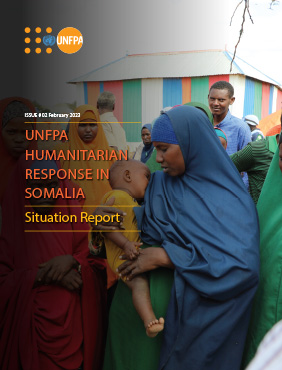
Somalia Situation Report - February 2023
The humanitarian crisis in Somalia remains dire. Severe drought, famine, disease, and violence have impacted millions, leading to widespread displacement. In 2022 alone, drought-related displacement increased by over five times, with more than 1.4 million people displaced since January 2021.
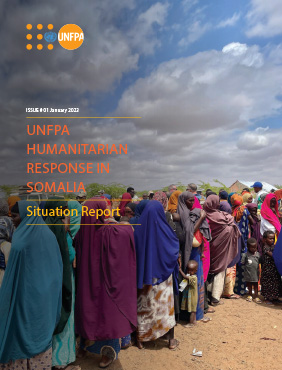
Somalia Situation Report - January 2023
Somalia is facing a climate emergency that is destroying the lives and livelihoods of millions of people. The forecast shows a fifth consecutive below-average rainy season for 2023, which has resulted in the longest drought the country has witnessed in more than 40 years. According to the UNHCR-led Protection and Return Monitoring Network (PRMN), the catastrophic drought has displaced more than 1.4 million people since 2021. Thousands of Somalis have also fled to neighboring countries to seek assistance. Many people have lost their livelihoods, and their coping capacities have been stretched.
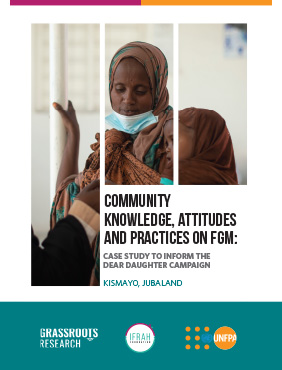
Community Knowledge, Attitudes and Practices on FGM_Jubaland
Female Genital Mutilation (FGM) is a procedure in which the external genitalia of girls and women are partially or completely removed and/or infibulated for non-medical reasons. The World Health Organisation (WHO) classifies four different types of FGM in terms of the degree of tissue removed and infibulation. In Somalia, the main cuts used for FGM are the Pharaonic form, which is considered the more severe form and a type of infibulation, and the milder Sunnah form. FGM causes lifelong physical, psychological, and reproductive health problems for the woman, but practicing communities uphold the practice as a social norm and religious duty. Somalia, including Jubaland, has one of the highest prevalence rates of FGM in the world, affecting nearly 98% of girls and women. The practice is shifting towards a milder form and medicalisation of the practice, while the high prevalence rates remain unchanged.
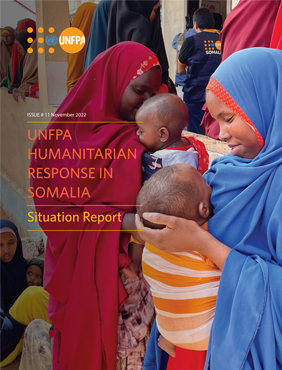
UNFPA Somalia Humanitarian Situation Report- November 2022
UNFPA Somalia prioritises the continuity of essential and life-saving SRH and GBV services during humanitarian crises, targeting vulnerable women and girls, Internally Displaced Persons (IDPs), and persons with disabilities. In November 2022, UNFPA and its partners reached 65,579 people with SRH services and 20,708 people with prevention and response to GBV, including Mental Health and Psychosocial Support (MHPSS) for women and girls. In addition, UNFPA reached 1,600 young people through youth-related activities.
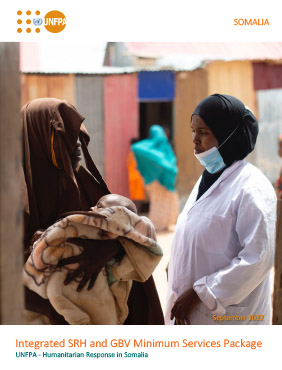
Integrated SRH and GBV Minimum Services Package: UNFPA-Humanitarian Response in Somalia
UNFPA is scaling up support to ensure that minimum services for SRH and GBV are fully available to Somali women and girls displaced and affected by the drought. An integrated SRH and GBV minimum response package is adopted to ensure a comprehensive initial response package to address the exacerbated needs of women and girls during a crisis. The response is focused on existing Emergency obstetric and newborn care (EmONC) facilities, One stop centres, GBV shelters and Women and Girls Safe Spaces; and identification of sites for additional facilities to improve the displaced population’s access to care.
UNFPA will continue to deliver SRH and GBV development support in all other parts of the country.
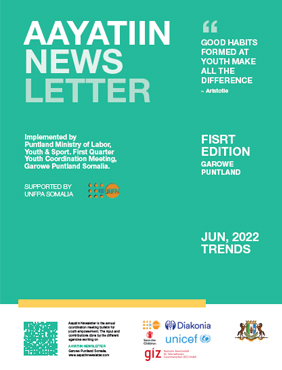
Aayatiin Newsletter
Aayatiin Newsletter is a quarterly magazine to share information, highlight achievements, best practices, and lessons learned for various youth issues in Puntland. The input and contributions made by the different agencies who are working youth sector in Puntland including UN agencies, International Organizations, Government, and Civil Society organizations.
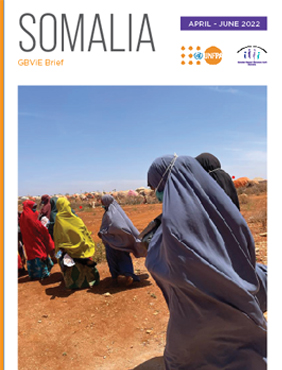
GBViE Brief_April - June 2022
Sexual abuse and exploitation, rape and Intimate Partner Violence (IPV) are continuously increasing amidst the prevailing drought, especially in Bakool, Bay, Banadir, Galgaduud, Gedo, Hiraan, Lower Juba, Middle Juba, Mudug, Nugaal, Sool and Togdheer regions of Somalia and Somaliland.
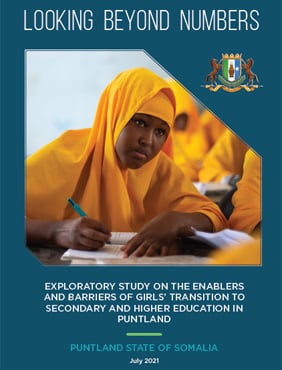
Exploratory study on the enablers and barriers of girls’ transition to secondary and higher education in Puntland
It is widely accepted that education greatly benefits individuals and countries and is one of the most effective development investments nations and their partners can make (USAID, 2018). Education helps catalyze economic growth of a country by building human capital (Abuya et al., 2014). Countries with a higher number of educated individuals are more likely to be politically stable, have better life expectancy rates and significant improvements in health (USAID, 2018). Educating girls and boys produces similar outputs in terms of their subsequent earnings and future opportunities, however educating girls results in greater socioeconomic gains, which benefit entire communities (Fancy, 2012).
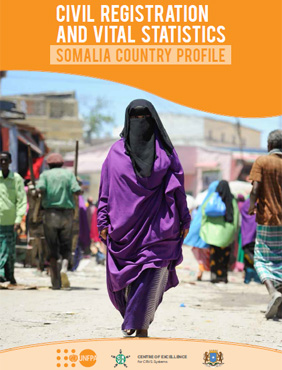
Civil Registration and Vital Statistics - Somalia Country Profile
Civil registration of vital events during the life course of individuals (births, marriages, deaths) is a major function of government that establishes the identity and civil status for ensuring human rights and access to services. Vital statistics from registration records are also useful for government policy and planning purposes, and such data are directly related to achievement of several United Nations Sustainable Development Goals.